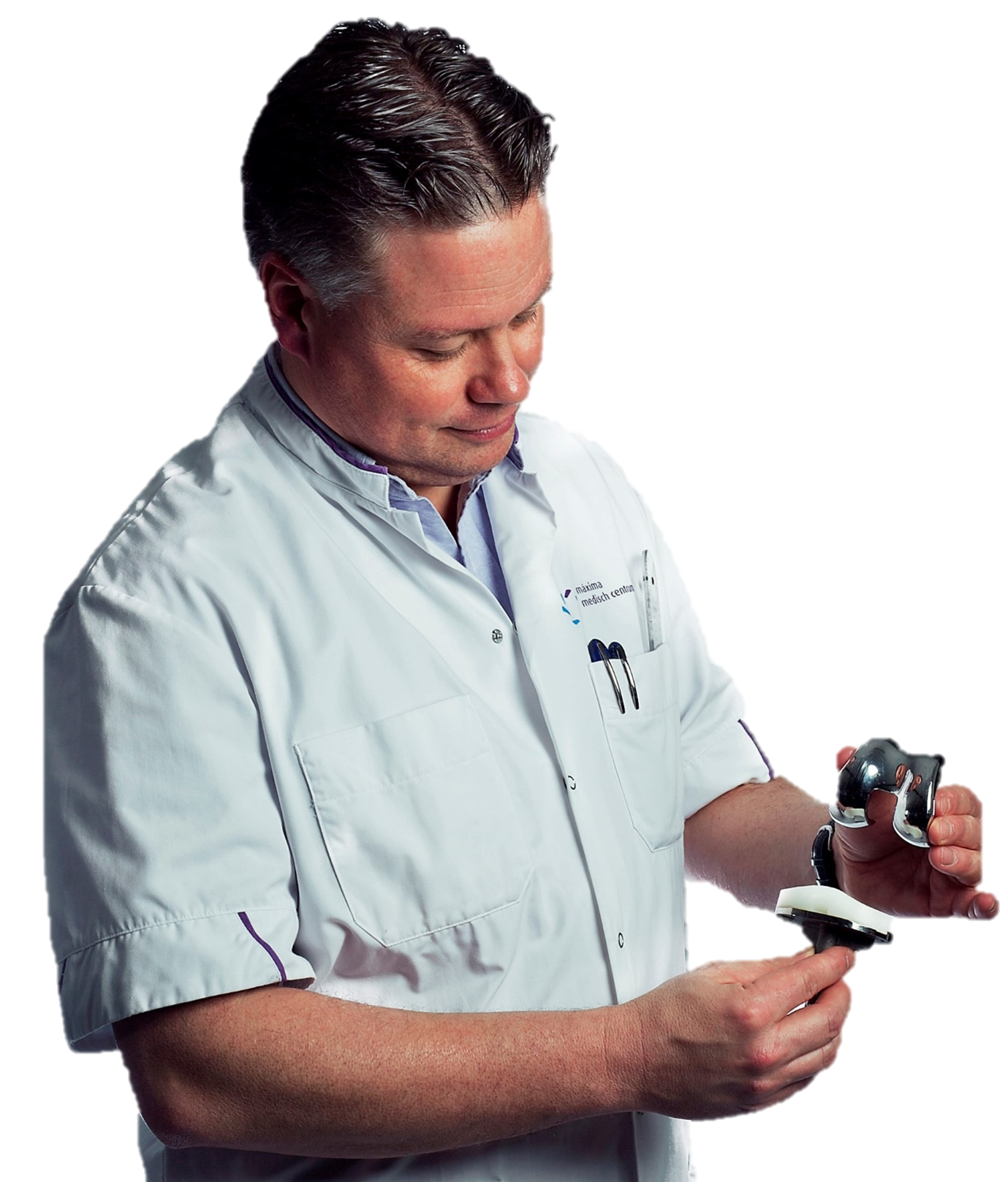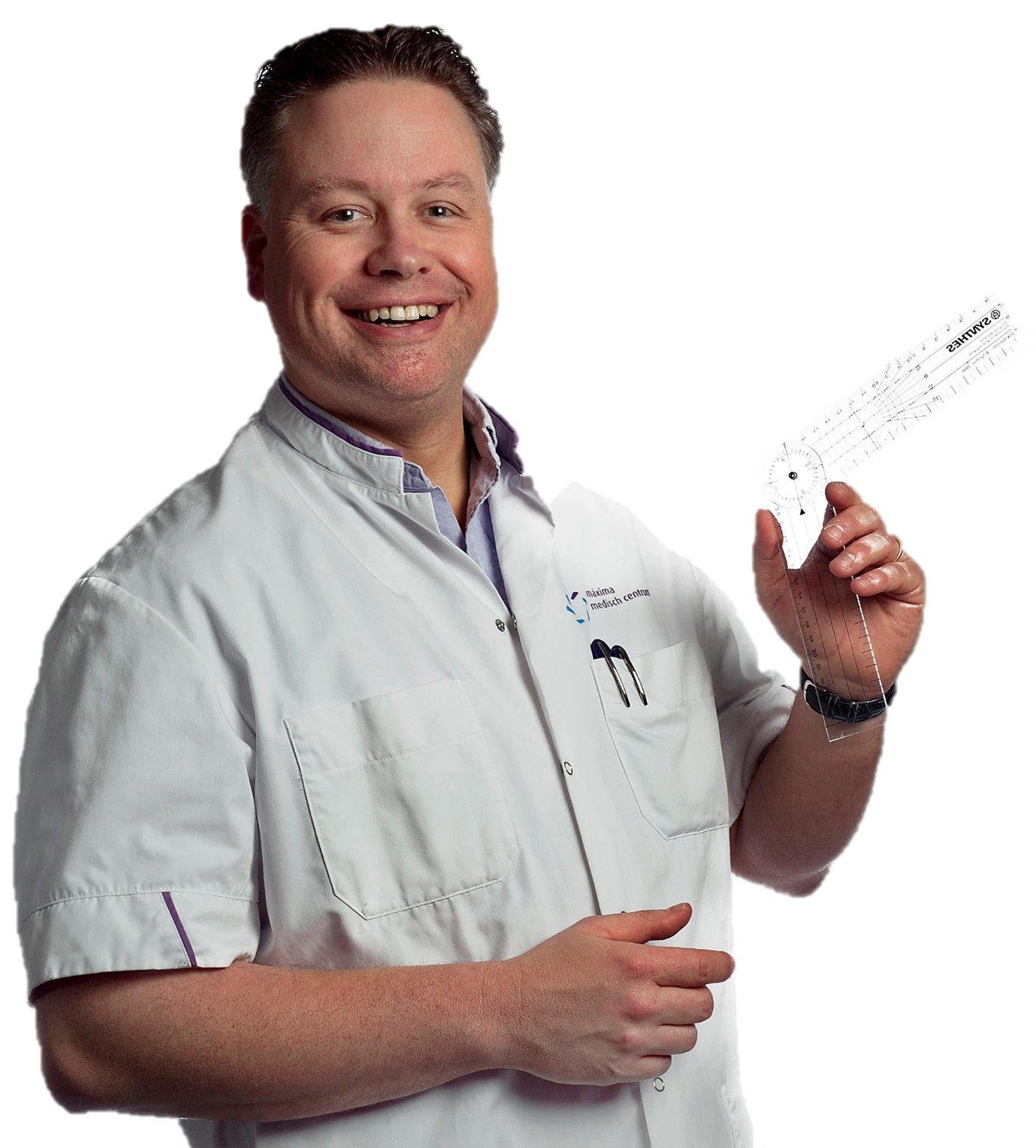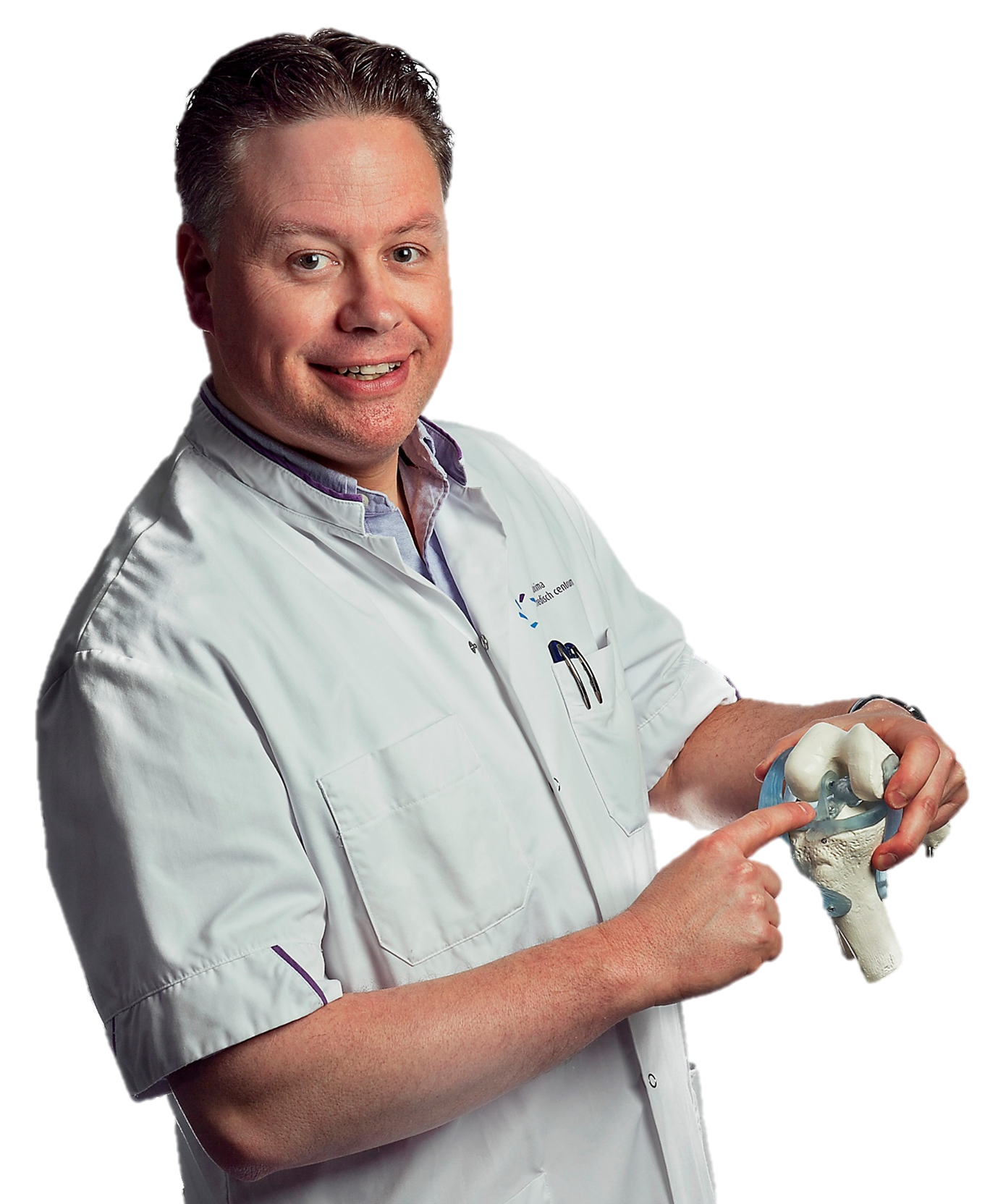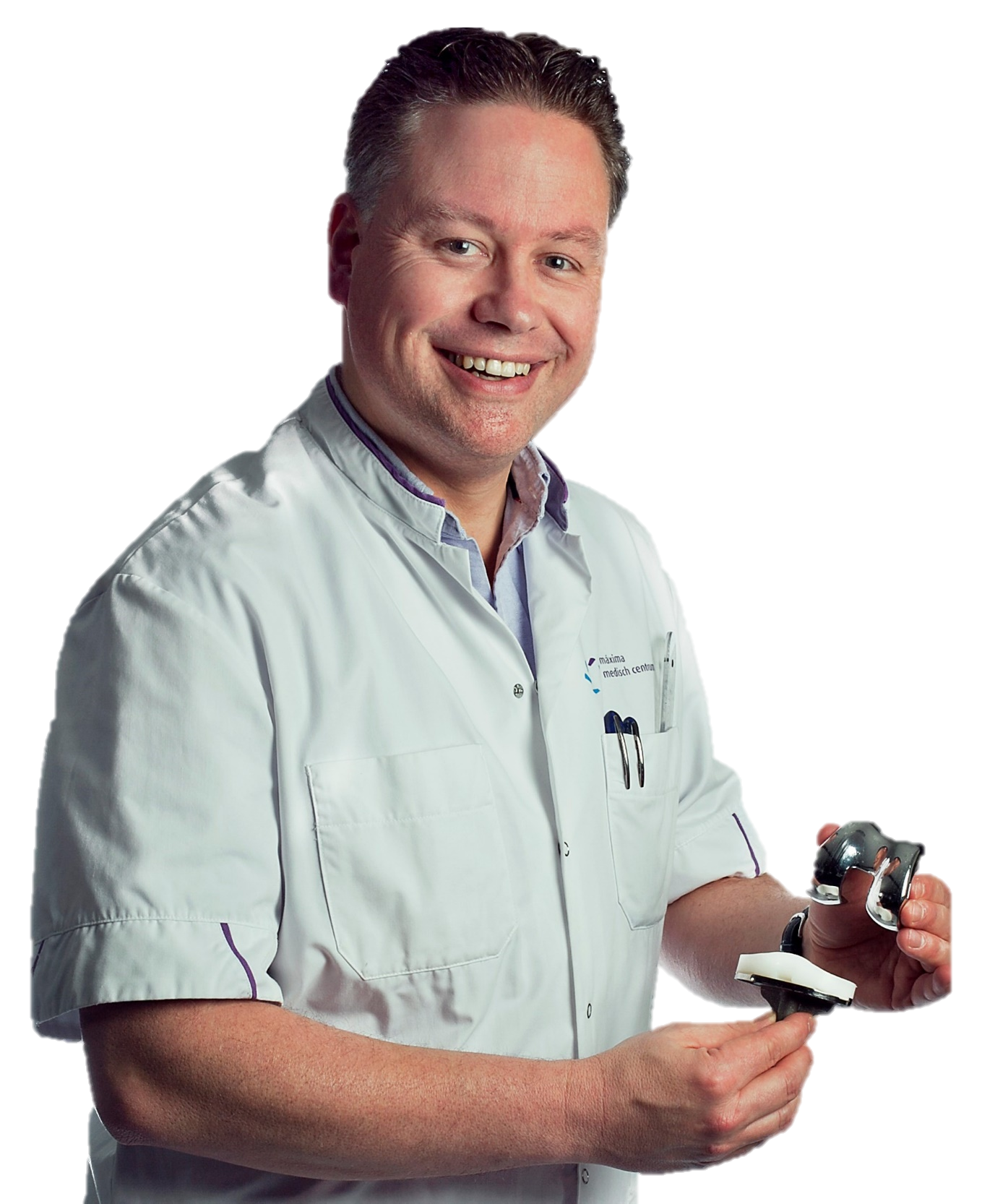STARR Study Group, Meuffels, D. E., &...
New publication
STARR Study Group, Meuffels, D. E., &...
New publication
Arens T, Melick van N, van der Steen MC, Janssen...
Editor’s Pick Prof Stafano Zaffagnini Journal of Experimental Orthopaedics
Knee Prosthesis: frequently asked questions
1. When is there an indication for a knee prosthesis?
Osteoarthritis of the knee may lead to pain. Osteoarthritis is caused by knee or sport injuries in the past. If all other treatments for osteoarthritis fail to provide pain relief, a knee prosthesis may be indicated. Pain at night and a walking distance inferior to 19 minutes are good indications for surgery.
2. What is the survival of a knee prosthesis?
This varies between 10-20 years. Overuse by sports or overweight may shorten the life cycle of the prosthesis. In case of loosening of the knee prosthesis, a revision knee prosthesis may be indicated.
3. How long is the hospital stay?
Hospital stay is 3 days on average. The KNAP (KNee Active Program) leads tot predictable and faster recovery after surgery.
4. What can I do to improve the rehabilitation after surgery?
A good knee function before surgery improves the recovery after the operation. Cycling and extension exercises may be useful. After surgery, you need to pay close attention to your gait pattern and extension of the knee. The physiotherapist will assist you during the hospital stay. You will need to exercise the knee extensively in the first months after surgery. Patience is a good virtue: the knee will tell you if periods of rest are required during the rehabilitation. The final result can be judged 1 year after the operation.
5. Are sports allowed after a knee prosthesis?
A knee prosthesis a an “artificial joint”. It is made of special materials which may slowly deteriorate in the long run. A knee prosthesis is meant for daily use. Sports such as cycling, walking and golf are permitted,. Heavy duty sports such as running, football, contact sports shorten the life cycle of the prosthesis. For this reason, these sports are not advisable.
6. Does a knee prosthesis have limitations?
Scientific research has demonstrated that the correct expectations are key for patient satisfaction after a knee prosthesis operation. Success rate is high: 90% of patients no loner experiences the osteoarthritic pain after surgery. The knee function is dependent on your muscle and joint motion. Kneeling is frequently experienced as troublesome and deep bending of the knee often limited. Pre-operative better motion of the knee leads to better knee motion after surgery. RPA Janssen uses a MIS High Flexion Knee Prosthesis to optimize knee function. The surgical results have been published in high quality peer reviewed journals (see Publications).
7. What are possible complications?
Complications after knee prosthesis surgery are uncommon (1%). These may be a joint infection, nerve or vascular injuries or venous thromboembolism. It is important to report any previous thrombosis to your treating physician. All patient s receive thromboembolic prophylaxis after a knee prosthesis operation.
8. How many knee prosthesis surgeries are performed?
The Orthopaedic Center Máxima is a specialized center for the treatment of knee osteoarthritis. More than 400 knee prosthesis operations are performed annually. The insurance companies in the Netherlands have awarded the Center with their Topcare certificates for knee surgery.





